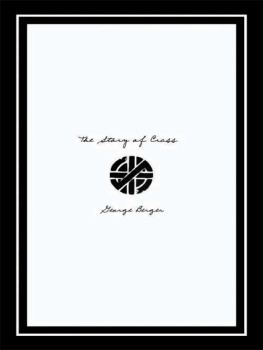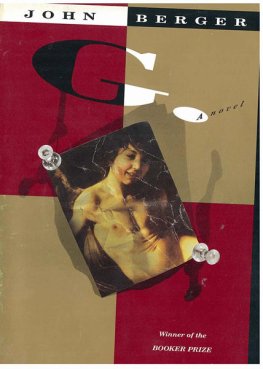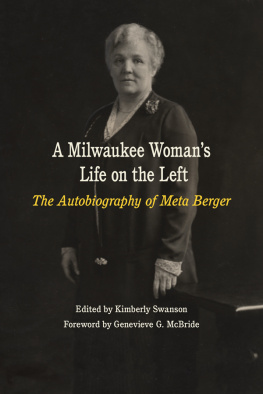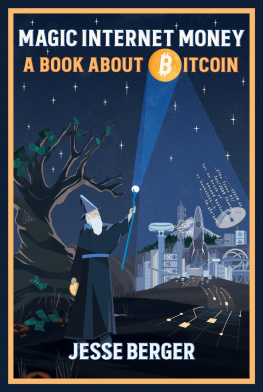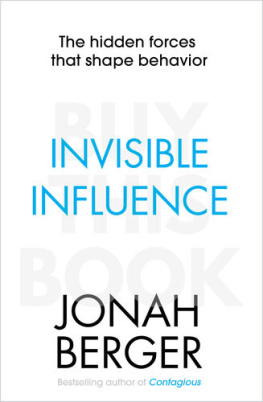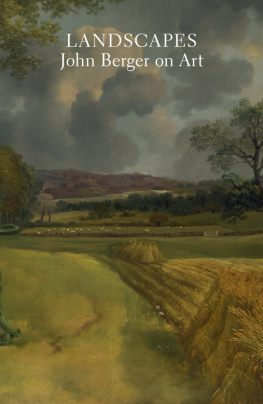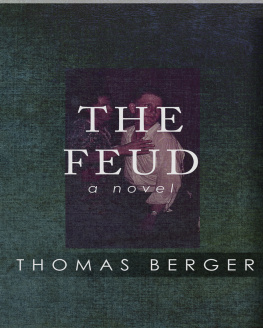George Berger - The Story of Crass
Here you can read online George Berger - The Story of Crass full text of the book (entire story) in english for free. Download pdf and epub, get meaning, cover and reviews about this ebook. year: 2009, publisher: PM Press, genre: Detective and thriller. Description of the work, (preface) as well as reviews are available. Best literature library LitArk.com created for fans of good reading and offers a wide selection of genres:
Romance novel
Science fiction
Adventure
Detective
Science
History
Home and family
Prose
Art
Politics
Computer
Non-fiction
Religion
Business
Children
Humor
Choose a favorite category and find really read worthwhile books. Enjoy immersion in the world of imagination, feel the emotions of the characters or learn something new for yourself, make an fascinating discovery.
- Book:The Story of Crass
- Author:
- Publisher:PM Press
- Genre:
- Year:2009
- Rating:3 / 5
- Favourites:Add to favourites
- Your mark:
- 60
- 1
- 2
- 3
- 4
- 5
The Story of Crass: summary, description and annotation
We offer to read an annotation, description, summary or preface (depends on what the author of the book "The Story of Crass" wrote himself). If you haven't found the necessary information about the book — write in the comments, we will try to find it.
The Story of Crass — read online for free the complete book (whole text) full work
Below is the text of the book, divided by pages. System saving the place of the last page read, allows you to conveniently read the book "The Story of Crass" online for free, without having to search again every time where you left off. Put a bookmark, and you can go to the page where you finished reading at any time.
Font size:
Interval:
Bookmark:
The Story of Crass
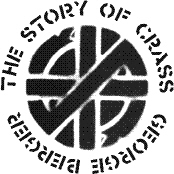

The Story Of Crass
George Berger
ISBN: 978-1-60486-037-5
Library of Congress Control Number: 2008934200
Copyright 2008 Omnibus Press
This edition copyright 2009 PM Press
All Rights Reserved
PM Press
PO Box 23912
Oakland, CA 94623
www.pmpress.org
Cover design by John Yates/Stealworks
Printed in the USA on recycled paper.
Contents
Dedicated to Joanna Markunas
"T his time its for real! jeered Ronnie Biggs, guest-recording with the remnants of The Sex Pistols on the Great RockNRoll Swindle soundtrack, and the paradox was complete. What had seemed like a lifeline to a generation who increasingly felt like the rubbish left out on Englands streets was being presented by Malcolm McLaren and his cohorts as nothing more than an elaborate illusion a rabbit pulled out of the hat, a simple act of misdirection.
The Swindle may have sought to confuse, and certainly succeeded in entertaining, but the lost tribes of England wanted more than that. For people whod bought into punk as a way of life,this time its for realwas a phrase that could have, should have, meant something.
Helen! Never trust a hippy! cried McLaren in the Swindle. We giggled at the cheek, unsure as to whether there was a tongue in it. Ironic perhaps, that it was to be a group of people emanating from the hippy era that would put the trust back into our lives.
On a more positive, and perhaps relevant note, there was a benign revolution in Nicaragua, when the Sandanistas stormed parliament and seized power. So, in amongst all the despair, always seeds of hope and a sense of possibility. Elsewhere,Astrid Proll is arrested in London and Sid Vicious pogoes off this mortal coil.
This time its for real.The irony is complete. London 1978. Punk is dead.
Which leaves a whole generation of punk rockers without a soundtrack. Because by now, punk is far more than a bunch of alternative music fans. Indeed, it always has been. It starts as a fashion statement screamed out of a shop called Sex (latterly Seditionaries) in the Kings Road and evolves into a lifestyle screaming danger gear and rebellion.
Nature abhors a vacuum. As does capitalism, naming it the gap in the market.
Enter Crass. The rest is, or should be, history. But it is a history so far shamefully under-recorded. Here, then, is the history of Crass. As an early Crass poster cried, hanging tattered and torn outside the corpse of the Roxy Club in Covent Garden: Germany got Baader-Meinhoff, England got punk. But they cant kill it.
They say the past is a different country, but the UK in the mid-seventies was a different continent. Or should that be incontinent England was a mess when punk exploded into its avenues and alleyways.
In 1974, the miners had gone on strike and brought down the Conservative government. But subsequently the economy, under a Labour Government, had fallen to pieces. They were forced to go cap in hand to the International Monetary Fund to request an emergency loan. By 1976, inflation was running at over 23%, and unemployment had doubled in just three years from just over 2% to almost 6%, the worst since the recession of the thirties. The temporary blip of post war economic boom that peaked in the sixties seemed been replaced by a wider post colonial-exploitation bust that saw Great Britain being put back in her economic post-Empire place by colonies sick of being sucked dry to feed their mother country.
Factor in the long oppressively hot summer of 1976 and youre getting a recipe for anger. A minister for drought Denis Howell was appointed and announced everyone had to reduce their water consumption by half or face water rationing. As the heat wave roared on, increasing numbers were admitted to hospital suffering from sunstroke and heart attacks. Motorways had problems with tarmac melting. The drought hardly helped the economy either, as thousands threw sickies from work in order to enjoy the sunshine.
Factor in the mass acceptance of racial bigotry to all this and youre running a serious risk of the anger exploding in a dangerous direction. This was a time when it was still acceptable for TV to run a comedy (Love Thy Neighbour) based on the racial bigotry of a white man towards his black neighbours; a time when Eric Clapton a musician who had made a fortune from playing the blues said live onstage that England had become overcrowded, advising the crowd to vote for Enoch Powell to stop Britain becoming a black colony. (Rock Against Racism would be set up in late 76 as a direct response to these remarks.) In May 1976, the National Front received almost one in five of the votes at a UK by-election, while summer saw race riots during the annual Notting Hill Carnival as largely black youth declared temporary war on the police.
A time before political correctness had gone mad, as the Daily Mail might see it.
I think that the general feeling in society from the mid-seventies onwards wasthat both main parties had nothing to offer. Till then people thought society wouldautomatically get better. Dave Morris (London Greenpeace, McLibel Two)
Anarchy In The UK at the time was publicly represented by the Angry Brigade a loose group of anarchists whose bombing campaign targeted a wide range of fascist and capitalist targets without any loss of life. The targets were usually connected with the state, though interestingly they also targeted hippie boutique Biba, and accompanied by communiqus that sought to explain their actions and encourage the workers to join in. Which, of course, they didnt.
Look backwards and England looks backward. The only spaghetti we had came in a tin (or a junction); our three television channels started at lunchtime and finished before midnight; videos were yet to come into the public arena and foreign holidays were just taking off as Spain became a popular destination. No matter that it was still a fascist dictatorship Franco may have died in 1975, but democracy wouldnt happen until 1978. Anna Ford caused a stir by breaking the sexual apartheid to become the first woman newsreader.
England looks backward but was desperately scraping around for something that may point forward. The emphasis on new had percolated through the seventies: slums were pulled down en masse in cities to be replaced by shiny utopian tower blocks. Just twenty years after the end of rationing, the consumer society was rife. People consumed for the sake of consuming: trendy new electrical items, coffee percolators, soda siphons; if it was new you had to buy it, regardless of whether you needed it or would ever use it, and if it was a status symbol, all the better. Credit cards and cash machines were introduced to encourage more spending, even if you didnt have the money. The never never. Still you kept buying. New new new. But where was the new music?
In December 1976, The Sex Pistols swore on the teatime family viewing Today programme and punk went overground. Anger and anarchy. Outrageous clothes that were statements in themselves. A generation of parents recoiled in horror and a nation of straights were suitably disgusted. Punk jumped from being almost a secret confined largely to London and Manchester, to being tabloid headline news. Depending on who you ask, it was the end of the beginning or the beginning of the end for punk.
Fast forward to 1978 and the initial punk explosion had blown over, particularly in the eyes of the media. The cathartic scream had been screamed and in some ways the dust was settling. Of the initial heroes (in an age of none), The Sex Pistols had been sent to America to die a needless death and The Clash were busy deciding they werent so bored with the USA after all, and metamorphosing into a successful middle of the road rock band. The music industry was promoting a roster of bands under labels like new wave and power pop, doing what it had always done best: taking a movement, watering down its essence and repackaging it for public consumption in a way that kept the accoutrements and readily identifiable ephemera whilst surgically removing the spirit. Bands like The Boomtown Rats leapt up the charts whilst The Jam self-censored the lyrics of
Next pageFont size:
Interval:
Bookmark:
Similar books «The Story of Crass»
Look at similar books to The Story of Crass. We have selected literature similar in name and meaning in the hope of providing readers with more options to find new, interesting, not yet read works.
Discussion, reviews of the book The Story of Crass and just readers' own opinions. Leave your comments, write what you think about the work, its meaning or the main characters. Specify what exactly you liked and what you didn't like, and why you think so.

